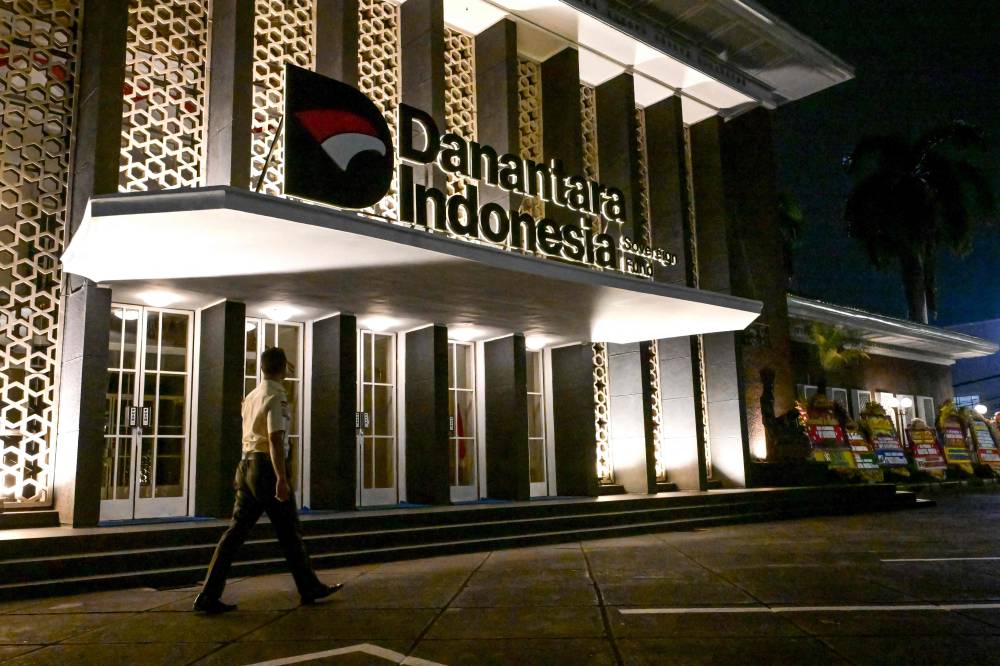Danantara: Malaysia misses key opportunities to create endowment fund, but still has hope - Economist
Malaysia missed key opportunities to establish such a fund, especially in 1990 and following the 1Malaysia Development Berhad (1MDB) scandal, which severely undermined public trust in large-scale financial management.

SHAH ALAM – Malaysia could amass over 1 trillion ringgit in an endowment fund if the government consolidated its holdings in state-owned corporations such as Petronas and Khazanah, along with its significant stake in publicly listed companies.
Economist Professor Emeritus Barjoyai Bardai said that such a move would show a strong commitment to addressing income inequality and disparities in equity ownership, potentially reshaping the nation's economic landscape.
“If the government had the courage to create an endowment fund by capitalising on government-owned corporations like Petronas and Khazanah and considering that the government controls more than 40 per cent of listed companies in Malaysia, consolidating these assets could immediately yield over RM1 trillion,” he told Sinar Daily recently.
However, he stated that Malaysia missed key opportunities to establish such a fund, especially in 1990 and following the 1Malaysia Development Berhad (1MDB) scandal, which severely undermined public trust in large-scale financial management.
Barjoyai pointed to Norway’s creation of an endowment fund after discovering North Sea oil in 1990 as a model that Malaysia could have followed.
“We could have done the same. There was a recommendation at that time to create a similar fund based on Petronas and the development of the oil industry in Malaysia—but we missed that opportunity,” he added.
Despite this, Barjoyai believes Malaysia can still rectify its course.
He said that while the country failed to set up an endowment fund, it succeeded in creating Petronas, which is now a Fortune 500 company.
Turning to Indonesia’s newly launched sovereign wealth fund, Daya Anagata Nusantara (Danantara), which aims to manage over USD 900 billion in state assets to stimulate economic growth, Barjoyai said it would not have an immediate impact on Malaysia or the broader regional economy.
However, he recognised that Indonesia is on track to become one of the world’s largest economies.
“In the long run, Indonesia is projected to become the fourth-largest economy by 2035.
"That projection is likely to happen regardless of whether the fund exists or not. Still, the fund is essential in demonstrating Indonesia’s commitment to addressing wealth and income disparities,” he said.
He also praised President Prabowo Subianto’s decisive approach to economic reforms, contrasting it with Malaysia’s more cautious stance. Barjoyai stated that Prabowo is committed to making bold decisions that bring about significant economic changes, whereas Malaysia tends to rely on traditional strategies like foreign direct investment and hesitates to implement transformative reforms.
If this cautious approach continues, he warned, Malaysia will not experience any substantial economic transformation.
Barjoyai urged Malaysia to take decisive action toward establishing an endowment fund, suggesting that it be structured as a national security or social protection fund to ensure its long-term stability and benefits.
“We need a drastic change and the creation of the endowment fund. It’s not just about setting it up; we need to secure it, lock it into an institutional framework, and ensure that it safeguards Malaysia’s economic future,” he added.
He also pointed out that Malaysia has the resources to restructure its economy effectively, but the real challenge lies in whether the government has the political will to take bold action now, or if it will continue waiting for an elusive “ideal” moment.
Universiti Teknologi Mara's Malaysian Academy of SME and Entrepreneurship Development (MASMED) coordinator, Dr Mohamad Idham Md Razak opined that Indonesia’s Danantara fund could increase competition for foreign capital in the region.
“Danantara’s focus on key sectors like renewable energy and agritech, along with its collaboration between state assets and private investors, could fast-track productive projects and enhance global competitiveness. However, this could result in capital being redirected away from Malaysia,” he said.
To maintain its status as a leading Asean investment destination, he added, Malaysia must strengthen its investment frameworks through regulatory improvements and expanded incentives, particularly within Khazanah Nasional.
Failure to act could see Malaysia fall behind in critical sectors such as the green energy transition, as Indonesia leverages its size and resources to dominate regional supply networks.
“Through Danantara, Indonesia is using state assets to fund high-impact sectors like renewables and food security, while bringing in foreign expertise through strategic partnerships. This model supports global environmental, social and governance (ESG) standards and expands beyond commodity markets,” he said.
Idham also highlighted that Danantara’s transparent governance structure, including independent boards and clear reporting, provides a benchmark for Malaysia to better align its investments with national objectives.
He praised Indonesia’s incremental approach, which began with a USD 20 billion commitment before expanding, as a strategic example of risk management.
“To regain trust in state-led investments, Malaysia can implement a gradual strategy alongside rigorous anti-corruption measures,” he proposed.
Idham called for a revision of Malaysia’s sovereign wealth fund (SWF) framework, drawing lessons from Danantara’s implementation and past financial mismanagement.
He proposed that the revamped fund focus on digital infrastructure and sustainable industries, aligning with current global SWF trends.
“To ensure transparency and accountability, Malaysia’s SWF should have legislative parliamentary oversight, independent audits, and protection of management from political influence,” he added.
Inspired by Norway’s Government Pension Fund Global, Idham recommended that Malaysia limit equity investments in high-risk projects to manage exposure.
He also stressed the importance of whistleblower protections and real-time investment disclosures to prevent corruption, ensuring the SWF functions as a national growth engine rather than a financial liability.
“The key to success is strong governance and accountability. If Malaysia implements the right safeguards, we can ensure that the SWF benefits future generations while avoiding the pitfalls of past financial scandals,” he added.
Download Sinar Daily application.Click Here!















